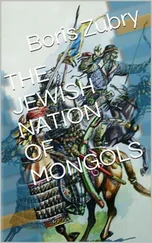112 105
113 106
114 107
115 108
116 109
117 110
118 111
119 112
120 113
121 114
122 115
123 116
124 117
125 118
126 119
127 120
128 121
129 122
130 123
131 124
132 125
133 126
134 127
135 128
136 129
137 130
138 131
139 132
140 133
141 134
142 135
143 136
144 137
145 138
146 139
147 140
148 141
149 142
150 143
151 144
152 145
153 146
154 147
155 148
156 149
157 150
158 151
159 152
160 153
161 154
162 155
163 156
164 157
165 158
166 159
167 160
168 161
169 162
170 163
171 164
172 165
173 166
174 167
175 168
176 169
177 170
178 171
179 172
180 173
181 174
182 175
183 176
184 177
185 178
186 179
187 180
188 181
189 182
190 183
191 184
192 185
193 186
194 187
195 188
196 189
197 190
198 191
199 192
200 193
201 194
202 195
203 196
204 197
205 198
206 199
207 200
208 201
209 202
210 203
211 204
212 205
213 206
214 207
215 208
216 209
217 210
218 211
219 212
220 213
221 214
222 215
223 216
224 217
225 218
226 219
227 220
228 221
229 222
230 223
231 224
232 225
233 226
234 227
235 228
236 229
237 230
238 231
239 232
240 233
241 234
242 235
243 236
244 237
245 238
246 239
247 240
248 241
249 242
250 243
251 244
252 245
253 246
254 247
255 248
256 249
257 250
258 251
259 252
260 253
261 254
262 255
263 256
264 257
265 258
266 259
267 260
268 261
269 262
270 263
271 264
272 265
273 266
274 267
275 268
276 269
277 270
278 271
279 272
280 273
281 274
282 275
283 276
284 277
285 278
286 279
287 280
288 281
289 282
290 283
291 284
292 285
293 286
294 287
295 288
296 289
297 290
298 291
299 292
300 293
301 294
302 295
303 296
304 297
305 298
306 299
307 300
308 301
309 302
310 303
311 304
312 305
313 306
314 307
315 308
316 309
317 367
318 368
319 369
320 370
321 371
322 372
323 373
324 374
325 375
326 376
327 377
328 378
329 379
330 380
331 381
The publication of this series was made possible with the support of the Zimin Foundation.
Boris Kolonitskii, Comrade Kerensky
Sergei Medvedev, The Return of the Russian Leviathan
Maxim Trudolyubov, The Tragedy of Property
Comrade Kerensky
The Revolution against the Monarchy and the Formation of the Cult of ‘The Leader of the People’ (March–June 1917)
Boris Kolonitskii
Translated by Arch Tait
polity
Originally published in Russian as Б.И. Колоницкий, “Товарищ Керенский”: антимонархическая революция и формирование культа “вождя народа” (март–июнь 1917 года) © Novoe Literaturnoe Obozrenie, Moscow, 2017
This English edition 2021 © Polity Press
The Translator asserts his moral right to be identified as the Translator of the Work.
The translation of this work was funded by the Zimin Foundation.

James Manteith’s translation of Leonid Kannegiesser’s ‘On Review’ originally appeared in Cardinal Points , vol. 7 (2017), edited by Boris Dralyuk and Irina Mashinski.
Polity Press
65 Bridge Street
Cambridge CB2 1UR, UK
Polity Press
101 Station Landing
Suite 300
Medford, MA 02155, USA
All rights reserved. Except for the quotation of short passages for the purpose of criticism and review, no part of this publication may be reproduced, stored in a retrieval system or transmitted, in any form or by any means, electronic, mechanical, photocopying, recording or otherwise, without the prior permission of the publisher.
ISBN-13: 978-1-5095-3366-4
A catalogue record for this book is available from the British Library.
The publisher has used its best endeavours to ensure that the URLs for external websites referred to in this book are correct and active at the time of going to press. However, the publisher has no responsibility for the websites and can make no guarantee that a site will remain live or that the content is or will remain appropriate.
Every effort has been made to trace all copyright holders, but if any have been overlooked the publisher will be pleased to include any necessary credits in any subsequent reprint or edition.
For further information on Polity, visit our website: politybooks.com
In memory of Rafail Sholomovich Ganelin
The writing of this book has been a long and tortuous process, and my enthusiasm for it was not shared by all my colleagues. One distinguished scholar suggested that, if I was going to write a biography, Tsereteli was a more interesting and thoughtful personality. But it was not Kerensky’s life I wanted to study. I have never seen myself as someone else’s biographer. What interested me was what had been written and said, what words had been used, about Kerensky and other political leaders during the 1917 revolution, because I believe that brings out important aspects of how the revolution proceeded.
The topic captured my imagination in the mid-1980s, the historical sources themselves propelling me in that direction. I was astonished by how the rapturous language used to describe the revolutionary leaders in 1917 anticipated the extolling of the Soviet leaders in the 1930s, and I thought it could not simply be written off as evidence of coercion. Zinaïda Gippius’s Blue Book made a powerful impression. It is based largely on the author’s diary and illustrates the changing attitude of a section of the intelligentsia towards Kerensky. People who in spring 1917 were busily and creatively contributing to the cult of a Leader and saviour were, by the autumn, reviling the very leader they had set up: Kerensky was now the main, if not, indeed, the sole, culprit for the political crisis. They appeared quite unaware of any responsibility on their part for the actions of their anointed.
I had a similar reaction when I heard the recrimination in the late perestroika period. ‘I so loved Gorbachev,’ one good lady in Moscow told me with a sigh. She sounded like a young girl disenchanted with the object of her infatuation. She sounded like those people who see their way out of a crisis by bestowing on some new messianic Leader all manner of powers and authority, only later to berate him as they absolve themselves of all blame. I have been publishing since 1991 on Kerensky’s various public images and have been gratified that some of my research has struck readers as having a bearing on the present.
Читать дальше










